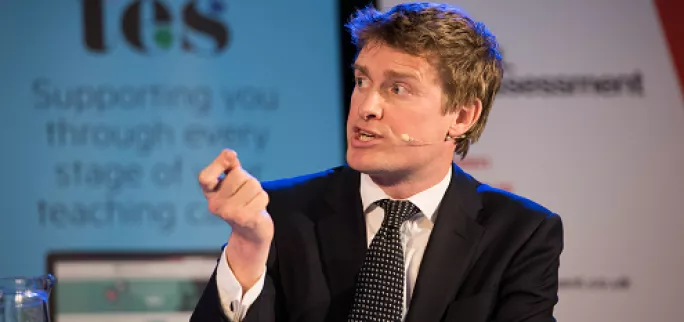‘Unsettling’ coalition reforms given ‘easy ride’ by Labour, academic says
The coalition has alienated teachers but escaped with an “easy ride” from a Labour opposition that has failed to challenge a series of “unsettling” school reforms, a leading academic has concluded.
Professor Alan Smithers makes his assessment in a new book on the current government’s record, which contains criticisms of many of its education policies.
The University of Buckingham education academic outlines problems with the expansion of academies, changes to exams and the shortage of school places. He also describes the Conservative former education secretary Michael Gove as “aggressive” and displaying a “coldness” towards teachers that has “alienated” the profession.
But Professor Smithers - writing in The Coalition Effect, 2010-2015, co-edited by master of Wellington College and historian Sir Anthony Seldon - reserves some of his strongest criticism for Labour, accusing the party of offering little resistance.
“All through the 2010 Parliament they [Labour] struggled to find a distinctive alternative narrative for schools,” he argues. “In some ways the coalition government has had an easy ride on education. It has been largely unchallenged by a Labour party which does not seem to have a vision of its own.”
Professor Smithers suggests that part of the problem may have been that Labour’s “2010 manifesto proposals for education did not differ markedly from those that were agreed by the coalition”.
He also notes the frequent changes of shadow education secretary; the present incumbent Tristram Hunt (pictured above) will have been in post for just 19 months “if he survives to the end of the Parliament”. Since 2010, the role has also been held by Ed Balls, Andy Burnham and Stephen Twigg.
The academic’s account of the past five years suggests several points on which the coalition could have been challenged. These include internal tensions over the lack of focus on wider children’s policy, with the Conservative former children’s minister Tim Loughton describing his government’s school reform programme as a “bulldozer”.
Professor Smithers, an adviser to the cross-party Commons Education Select Committee, says the “very basis” of the converter academies programme is “contestable”, noting a “number of practical problems” and a lack of oversight.
He points to several changes of mind in the government over exam reform and a “lack of proper planning for increased pupil numbers, which has led to overcrowding and discomfort”. The academic also warns that the switch from university to school-led teacher training risks teacher shortages.
He adds that Mr Gove had an “increasingly pugilistic and mistrusting style” that “alienated even those who want the same ends” and suggests that the former education secretary’s “own emotions seem to have taken over”.
But Professor Smithers does credit ministers for making “excellent” appointments to head the two education regulators. He describes the Ofsted chief inspector Sir Michael Wilshaw as “independent, forthright and not afraid of challenging ministers”. Glenys Stacey, Ofqual chief regulator is praised for her “sternness” and “great charm”.
Mary Bousted, general secretary of the ATL teaching union, said: “It has been more difficult for Labour to establish clear blue water because so many of Michael’s Gove’s policies were logical extensions of what Labour had done.
“But it is not true to say that Labour has failed to provide a different narrative particularly around [teacher] professionalism and the need for a middle tier.”
A spokesperson said the Department for Education was “delivering higher standards” through free schools and academies and exam reform.
“Academy trusts operate under a strict system of oversight and accountability and we always take swift action where issues are identified,” they added. “We have invested more than £5 billion to create more than 445,000 new school places - more than double the amount invested in the previous four years - and in total there are now more than 40,000 fewer pupils in overcrowded schools compared to 2010.
“School-led training gives headteachers more influence and control over the way that teachers are trained and recruited and is helping to drive up standards.”
The Labour party was offered an opportunity to comment.
Related stories:
Hunt: Labour will not tear up the new curriculum - 5 June 2014
‘Labour’s policies should be taken seriously, but only if they focus on improving what happens in the classroom’ - 16 January 2014
Tim Brighouse’s challenge to Labour: Base ed policy on evidence, not anecdote or political advisers - 23 September 2013
Keep reading for just £1 per month
You've reached your limit of free articles this month. Subscribe for £1 per month for three months and get:
- Unlimited access to all Tes magazine content
- Exclusive subscriber-only stories
- Award-winning email newsletters




